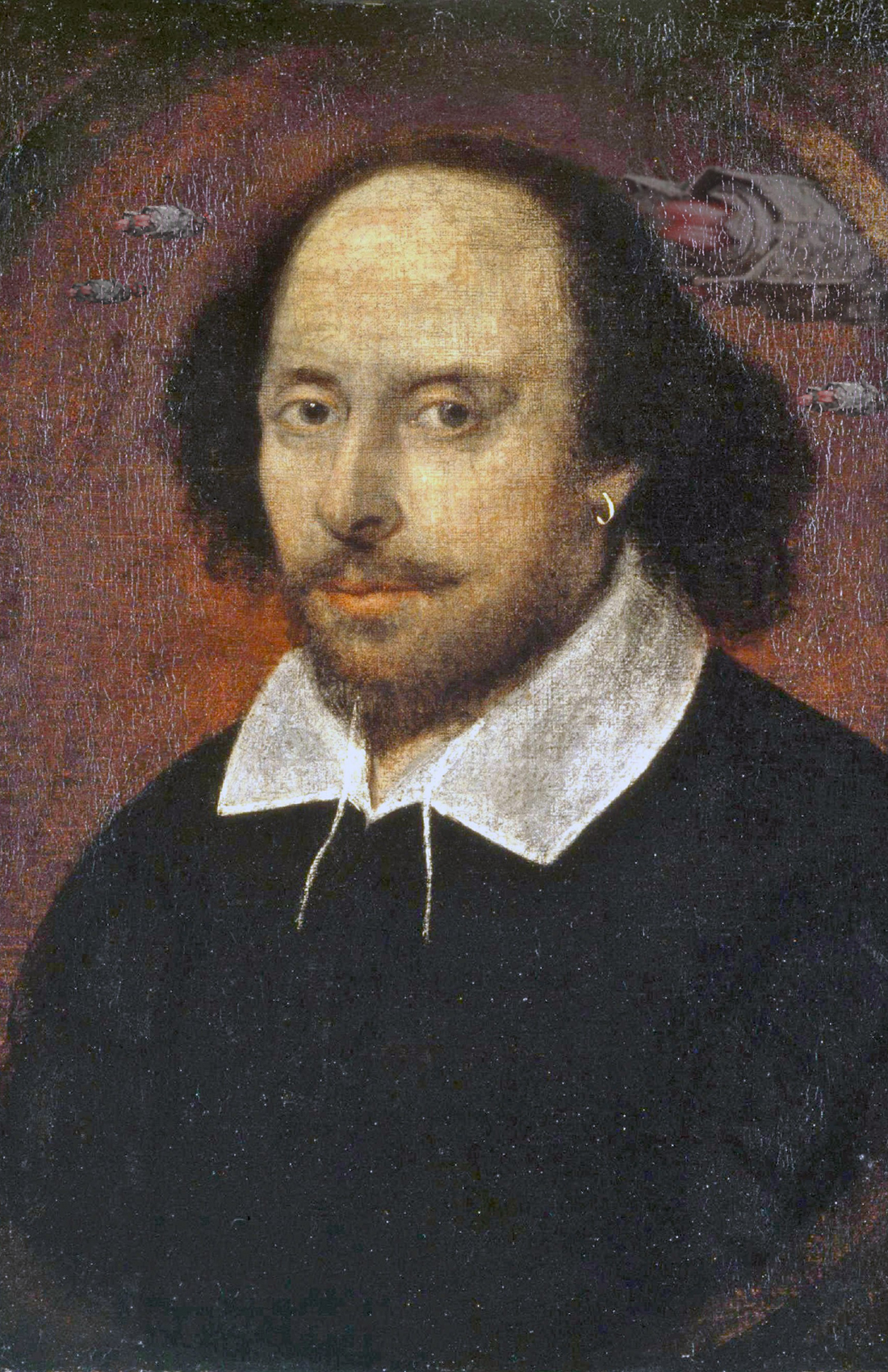We at Space Squid rarely have claim to any literary significance. However, thanks to years of research by our dedicated London office, we have unearthed a long-lost quarto containing a sonnet apparently written by William Shakespeare. “Sonnet 155,” as we’re calling it, has been verified by at least one literary expert, Martin W. Kevorkian, associate professor and associate English department chair at the University of Texas at Austin.
The quarto came to light thanks to the patient efforts of Isobel Horsburgh, head of our London office and associate editor based out of South Tyneside. Isobel has been exploring London’s secrets for over a decade. On July 2nd, her curiosity and a few personal connections put her in the tower of storied Southwark Cathedral, formerly known as Southwark Priory, where Queen Mary condemned six church officials to death in 1555.
“I had a feeling the old church had some special significance to Shakespeare,” Isobel says. “It was seen as the home church for the Bankside playwrights, and his brother Edmund was interred there in 1607. Still, it was a shock when I dislodged a stone and found the snuff box beneath.” Inside were six coins, a razor, a few disintegrating quills and inkpots, and the quarto.
Of course, the true authorship of Shakespeare’s work has occasionally come into dispute. “We were definitely concerned that 155 might be exposed to some of the same scrutiny,” says editor J.J. Reynolds. Publication co-founder Matthew Bey adds, “We were gratified when Professor Kevorkian immediately offered to travel to London and verify our findings.”
“Knowing the reputation of Space Squid, I initially wanted to debunk 155,” Prof. Kevorkian admits. “But when I saw the actual words on the page, and had a few hours to absorb them, I was convinced. It’s all there, the perfect phrasing, the complete command of tone and word choice, the precision and power. There’s no doubt in my mind that this is his work.”
In the poem, the author writes of his “sky boat,” a craft which he uses to obtain “verse from stranger climes” where “wealth is wrought with words and skillful pen.” Taken literally, the poem seems to claim that the narrator has used the vessel to visit places “that England’s never seen.” The nature of these places, and the intent of the poem itself, is a bone of contention even in the Space Squid offices.
“For me, the poem is purely an elegant flight of fancy,” argues Squid editor Matthew F. Amati. “To postulate that Shakespeare traveled to other planets is, frankly, laughable. He could be speaking from an imaginary point of view.”
“It’s possible he was speaking metaphorically,” Prof. Kevorkian says. “He could be describing the mental journey of an artist, traveling into places most of us fear to tread.”
“Well, some of us have long theorized that Shakespeare employed some kind of craft to travel to distant planets and grift work from their inhabitants in a primitive form of cultural imperialism,” says editor-in-chief D Chang. “If he’d only known how to properly enslave cultures, he could have changed the world.”
Prof. Kevorkian circles back to praise the sonnet itself. “It’s brilliantly conceived and sharply executed, and I admire how Shakespeare uses slant rhyme to emphasize the otherness of these ‘stranger climes.’ The ‘volta’ in the final heroic couplet here is perhaps not as dramatic as in 130, but it creates a shift in mood that’s arguably as effective.
“To read 155 is to be reunited with an old, dear friend. Thank you, Space Squid, and thank you, William Shakespeare.”
What follows is the full text of this remarkable work.
My sky boat’s heart is stokéd by the sun (sonnet 155)
by William Shakespeare (1564-1616)
My sky boat’s heart is stokéd by the sun;
In darkness she endures on aether fine;
A swift and stealthy star-road she doth run.
Come drought, she brings me verse from stranger climes,
The myths of folk that England’s never seen.
Some say ’tis base to filch from poorer men,
But gold is lead in these weird spheres serene,
Where wealth is wrought with words and skillful pen.
O hark! I sense her captain’s silent call;
Our human thirst for misery she’ll slake.
I’d fain forbear this shameful caterwaul,
But guilt compels me witness for her sake.
My love’s full belly, ripe with tales of woe,
Now glows aloft; soon we may start the show.
~~~
About the Creator
William Shakespeare, also known as the “Bard of Avon,” was a popular and critically-acclaimed writer of plays and poetry. Shakespeare is yet another Space Squid contributor from the United Kingdom. He lived in London with his wife and three children. Occasionally, critics have claimed his work was written by others. Fortunately, no such claim has been made about sonnet 155.
About the Artists
Parker_West and WikiImages are visual artists on Pixabay.
Our very own D Chang is a designer and game writer from Austin, Texas. His short fiction has appeared in Avast, Ye Airships! and the Cryptopolis science fiction anthology, and he has a janky retro JRPG on Steam. He does the Space Squid illustrations, editing, and other squid stuff.
Special thanks to Prof. Martin Kevorkian for his help in verifying and analyzing Sonnet 155. Professor Martin W. Kevorkian studies race, technology, and the literature of the American Renaissance. He lives in Austin and is currently writing books on Melville and the literature of digital exhaustion.
You can read previous Space Squid stories in our archives.

Leave a Reply